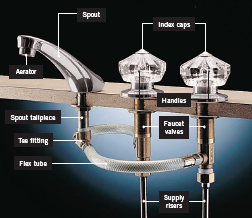Maintenance refers to the process of preserving, repairing, and managing assets, systems, equipment, or facilities to ensure they function effectively and efficiently. It encompasses various tasks aimed at preventing or addressing issues that could lead to deterioration, malfunction, or failure over time. Maintenance activities are essential in a wide range of industries, including manufacturing, construction, transportation, technology, and more.
 |
| Maintenance |
There are several types of maintenance:
1- Preventive Maintenance:
This involves regular inspections, cleaning, and minor repairs to prevent equipment or systems from breaking down. It aims to identify and address potential issues before they cause major problems.
2- Corrective Maintenance:
Also known as reactive or breakdown maintenance, this type involves repairing equipment or systems after they have failed or malfunctioned.
3- Predictive Maintenance:
Using data analysis and monitoring technologies, predictive maintenance aims to predict when equipment is likely to fail so that maintenance can be scheduled just in time, reducing downtime.
4- Condition-Based Maintenance:
This is similar to predictive maintenance but focuses on monitoring specific conditions or parameters to determine when maintenance is needed.
5- Routine Maintenance:
Regularly scheduled tasks like oil changes, filter replacements, and inspections fall under routine maintenance. These tasks are often performed at specific intervals.
Read also How to check the installation of the Air Duct ?
6- Shutdown Maintenance:
This involves more extensive maintenance activities that require shutting down an entire system or facility. It's often done during scheduled downtime to perform comprehensive repairs, upgrades, or replacements.
Maintenance is crucial for various reasons:
- Optimal Performance: Regular maintenance ensures that equipment and systems perform at their best, maintaining productivity and efficiency.
- Safety: Properly maintained equipment is less likely to cause accidents or harm to personnel.
- Cost Savings: Preventive and predictive maintenance can help identify issues early, reducing the need for costly emergency repairs and minimizing downtime.
- Asset Longevity: Well-maintained assets tend to have longer lifespans, delaying the need for replacements.
- Regulatory Compliance: In many industries, maintenance is required to comply with safety and environmental regulations.
- Customer Satisfaction: Maintenance ensures that products and services are delivered consistently, leading to higher customer satisfaction.
Read also Fire Fighting Hazards Classification
Modern maintenance often involves utilizing technology, such as sensors, data analytics, and computerized maintenance management systems (CMMS), to streamline processes and make informed decisions.
Read also HVAC Design Calculations Formulas Handbook
Ultimately, maintenance is a critical aspect of any industry that relies on equipment, systems, or facilities to function efficiently and safely.
Read also Classification of HVAC chillers .




0 Comments